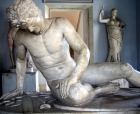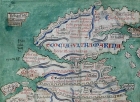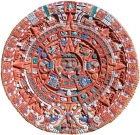Chronological Understanding
Chronological understanding enables children to be able to place events and people both within and across historical periods. This section will provide inspirational activities which support a coherent understanding of chronology.
Sort by:
Date (Newest first) | Title A-Z
Show:
All |
Articles |
Podcasts |
Multipage Articles
-

A creative Egyptian project
ArticleClick to view -

A history of the world - 100 objects that tell a story
ArticleClick to view -

Ancient Sumer
ArticleClick to view -

Assessment and Progression without levels
ArticleClick to view -

Britain's settlement by Anglo-Saxons and Scots
ArticleClick to view -

Case Study: Creative chronological thinking
ArticleClick to view -

Children's Thinking: Developmental psychology and history education
ArticleClick to view -

Chronology & Topics at Key Stage 2
ArticleClick to view -

Chronology and local history: Year 6
ArticleClick to view -

Chronology through ICT
ArticleClick to view -

Constructivist chronology and Horrible Histories
ArticleClick to view -

Developing pupils' chronological understanding
ArticleClick to view -

Early Islamic civilisation
ArticleClick to view -

Elizabethan times: Just banquets and fun?
ArticleClick to view -

Enhancing temporal cognition: Practical activities for the primary classroom
ArticleClick to view -

Eweka's story: Benin and Big Picture History
ArticleClick to view -

From Home to the Front: World War I
ArticleClick to view -

Historical fiction: it’s all made up, isn’t it?
ArticleClick to view -

How do pupils understand historical time?
ArticleClick to view -

How to teach chronology
ArticleClick to view

